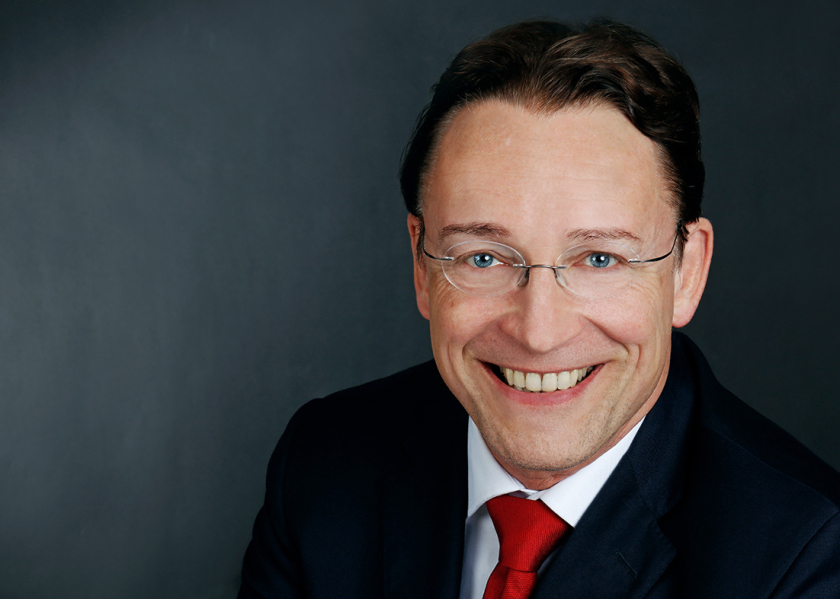HZB strengthens its technology transfer

Dr. Paul Harten heads the new "Technology Transfer and Innovation" department
The Helmholtz-Zentrum Berlin (HZB) wants to bring technologies to market faster together with industrial partners and use its expertise in materials and energy research to investigate questions from industry in joint projects. The newly established "Technology Transfer and Innovation" department will identify cooperation partners and applications that are of industrial interest.
"The HZB has a high level of systems competence that covers the entire innovation chain from basic research to application, making it an important partner for industry and society. We want to further expand this with the new staff department," says Prof. Dr. Bernd Rech, Scientific Director of HZB for the Energy Division.
"HZB conducts research on many topics that are also of interest to industry. In addition, there is an excellent research infrastructure here, with which materials can not only be characterized in a variety of ways, but also synthesized and modified. This gives us enormous potential for cooperation with industry," says Dr. Paul Harten, head of the "Technology Transfer and Innovation" department. "We want to actively approach industry and promote these offers. We also plan to intensify contacts with former employees and guest scientists. The establishment of an ALUMNI network is an opportunity to gain existing contacts for joint new projects.
Short biography:
Dr. Paul Harten studied physics and received his doctorate in optics from the University of Arizona. He has gained a wide range of professional experience in order to advance the usability of technologies. Among other things, Harten worked in the development department of a large German corporation, in the management of a medium-sized company and was involved in the founding of several start-ups. Most recently, he worked at the Helmholtz Innovation Lab HySPRINT on industrial partnerships for the establishment of large-area laser material processing methods in various industries.
(sz)
https://www.helmholtz-berlin.de/pubbin/news_seite?nid=20765;sprache=en
- Copy link
-
Optical innovations for solar modules - which are the most promising?
In 2023, photovoltaic systems generated more than 5% of the world’s electrical energy and the installed capacity doubles every two to three years. Optical technologies can further increase the efficiency of solar modules and open up new applications, such as coloured solar modules for facades. Now, 27 experts provide a comprehensive overview of the state of research and assess the most promising innovations. The report, which is also of interest to stakeholders in funding and science management, was coordinated by HZB scientists Prof. Christiane Becker and Dr. Klaus Jäger.
-
BESSY II: Magnetic ‘microflowers’ enhance magnetic fields locally
A flower-shaped structure only a few micrometres in size made of a nickel-iron alloy can concentrate and locally enhance magnetic fields. The size of the effect can be controlled by varying the geometry and number of 'petals'. This magnetic metamaterial developed by Dr Anna Palau's group at the Institut de Ciencia de Materials de Barcelona (ICMAB) in collaboration with her partners of the CHIST-ERA MetaMagIC project, has now been studied at BESSY II in collaboration with Dr Sergio Valencia. Such a device can be used to increase the sensitivity of magnetic sensors, to reduce the energy required for creating local magnetic fields, but also, at the PEEM experimental station, to study samples under much higher magnetic fields than currently possible.
-
Perovskite solar cells: New Young Investigator Group funded by BMBF at HZB
In the COMET-PV project, Dr Artem Musiienko aims to significantly accelerate the development of perovskite solar cells. He is using robotics and AI to analyse the many variations in the material composition of tin-based perovskites. The physicist will set up a Young Investigator Group at HZB. He will also have an affiliation with Humboldt University in Berlin, where he will gain teaching experience in preparation for a future professorship.
